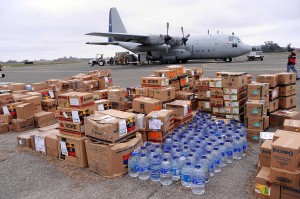 Let’s get one thing straight. I do NOT do humanitarian work. I’ve never really been cut out for it and probably never will be. Believe me, that’s not to say I do not respect this work or the professionals who are often first responders to tragedies in the developing world (leave it to me to respond to a crisis of epic proportions, like the earthquake in Haiti, and I will pass out right alongside the people I was supposed to be helping). My work, as an urban planning consultant, comes into play after the aid workers have left.
Let’s get one thing straight. I do NOT do humanitarian work. I’ve never really been cut out for it and probably never will be. Believe me, that’s not to say I do not respect this work or the professionals who are often first responders to tragedies in the developing world (leave it to me to respond to a crisis of epic proportions, like the earthquake in Haiti, and I will pass out right alongside the people I was supposed to be helping). My work, as an urban planning consultant, comes into play after the aid workers have left.
Pinchina Consulting was created to provide short- and long-term community planning assistance to countries without a strong foundation for land-use regulations. Yes, the firm was created as a direct result of the earthquake. This is probably why some people mistake it for another humanitarian aid organization. Rather than give people important but short-lived resources like water, food, and a temporary tent, I work with them to strategically consider how to make their neighborhoods self-reliant in obtaining and delivering these resources on their own. Struggling communities need properly designated neighborhoods, stable economies, and a strong workforce, in addition to yes: food, water, shelter, and safety. These are not separate goals. When people have residential neighborhoods to live in, paved roads to transport goods and provide services, employment opportunities, etc., food, water, shelter, and safety come – for present and future generations.
Therefore, Pinchina Consulting does not have to wait until a ‘disaster’ occurs to assist communities in need. Additionally, assistance can go beyond a one-sided hand out where I’m the only one with something to offer. Poorer communities intuitively have what it takes to determine their fate. It is up to me to work with them in exploring the physical, political and economic feasibility of bringing their visions to reality.


About The Author: Vanessa L.
More posts by Vanessa L.